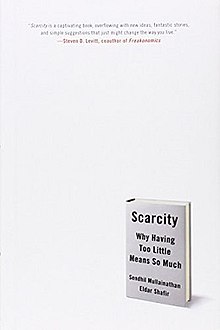
Economics is a social science that studies the production, distribution, and consumption of goods and services.

Macroeconomics is a branch of economics that deals with the performance, structure, behavior, and decision-making of an economy as a whole. This includes regional, national, and global economies. Macroeconomists study topics such as output/GDP and national income, unemployment, price indices and inflation, consumption, saving, investment, energy, international trade, and international finance.
Stagflation refers to an economic condition characterized by a simultaneous occurrence of high inflation, stagnant economic growth, and elevated unemployment. This phenomenon challenges traditional economic theories, which previously suggested that inflation and unemployment were inversely related, as depicted by the Phillips Curve. The term stagflation, a blend of "stagnation" and "inflation," was popularized by British politician Iain Macleod in the 1960s, during a period of economic distress in the United Kingdom. It gained broader recognition in the 1970s following a series of global economic shocks, particularly the 1973 oil crisis, which significantly disrupted supply chains and contributed to rising prices and slowing growth.
In economics, the fiscal multiplier is the ratio of change in national income arising from a change in government spending. More generally, the exogenous spending multiplier is the ratio of change in national income arising from any autonomous change in spending. When this multiplier exceeds one, the enhanced effect on national income may be called the multiplier effect. The mechanism that can give rise to a multiplier effect is that an initial incremental amount of spending can lead to increased income and hence increased consumption spending, increasing income further and hence further increasing consumption, etc., resulting in an overall increase in national income greater than the initial incremental amount of spending. In other words, an initial change in aggregate demand may cause a change in aggregate output that is a multiple of the initial change.
In economics, money illusion, or price illusion, is a cognitive bias where money is thought of in nominal, rather than real terms. In other words, the face value of money is mistaken for its purchasing power at a previous point in time. Viewing purchasing power as measured by the nominal value is false, as modern fiat currencies have no intrinsic value and their real value depends purely on the price level. The term was coined by Irving Fisher in Stabilizing the Dollar. It was popularized by John Maynard Keynes in the early twentieth century, and Irving Fisher wrote an important book on the subject, The Money Illusion, in 1928.

Sendhil Mullainathan is an American professor of economics at the Massachusetts Institute of Technology. He was a professor of Computation and Behavioral Science at the University of Chicago Booth School of Business from 2018-2024. He is the author of Scarcity: Why Having Too Little Means So Much. He was hired with tenure by Harvard in 2004 after having spent six years at MIT.
In economics, a cycle of poverty, poverty trap or generational poverty is when poverty seems to be inherited, preventing subsequent generations from escaping it. It is caused by self-reinforcing mechanisms that cause poverty, once it exists, to persist unless there is outside intervention. It can persist across generations, and when applied to developing countries, is also known as a development trap.
In computing, computer performance is the amount of useful work accomplished by a computer system. Outside of specific contexts, computer performance is estimated in terms of accuracy, efficiency and speed of executing computer program instructions. When it comes to high computer performance, one or more of the following factors might be involved:
The Financial Access Initiative (FAI) is an American consortium, established in 2006, of researchers at New York University (NYU), Yale University, Harvard University and Innovations for Poverty Action (IPA) focused on finding answers to how financial sectors can better meet the needs of poor households.

Jonathan Morduch is a professor of public policy and economics at the Robert F. Wagner Graduate School of Public Service at New York University. He is a development economist most well known for his significant academic contributions to assessing the impact of microfinance since the early years of the movement. He has written extensively on poverty and financial institutions in developing countries and on tensions between achieving social impacts and meeting financial goals in microfinance.

The aim of water security is to make the most of water's benefits for humans and ecosystems. The second aim is to limit the risks of destructive impacts of water to an acceptable level. These risks include for example too much water (flood), too little water or poor quality (polluted) water. People who live with a high level of water security always have access to "an acceptable quantity and quality of water for health, livelihoods and production". For example, access to water, sanitation and hygiene services is one part of water security. Some organizations use the term water security more narrowly for water supply aspects only.

The Abdul Latif Jameel Poverty Action Lab (J-PAL) is a global research center based at the Massachusetts Institute of Technology aimed to reducing poverty by ensuring that policy is informed by rigorous, scientific evidence. J-PAL funds, provides technical support to, and disseminates the results of randomized controlled trials evaluating the efficacy of social interventions in health, education, agriculture, and a range of other fields. As of 2020, the J-PAL network consisted of 500 researchers and 400 staff, and the organization's programs had impacted over 400 million people globally. The organization has regional offices in seven countries around the world, and is headquartered near the Massachusetts Institute of Technology in Cambridge, Massachusetts.
The Center for Population Economics is a research center at the University of Chicago Booth School of Business. The work of the CPE is funded primarily by the U.S.'s National Institute on Aging of the National Institutes of Health.

Climate change and poverty are deeply intertwined because climate change disproportionally affects poor people in low-income communities and developing countries around the world. The impoverished have a higher chance of experiencing the ill-effects of climate change due to the increased exposure and vulnerability. Vulnerability represents the degree to which a system is susceptible to, or unable to cope with, adverse effects of climate change including climate variability and extremes.

The main causes of water scarcity in Africa are physical and economic water scarcity, rapid population growth, and the effects of climate change on the water cycle. Water scarcity is the lack of fresh water resources to meet the standard water demand. The rainfall in sub-Saharan Africa is highly seasonal and unevenly distributed, leading to frequent floods and droughts.

Eldar Shafir is an American behavioral scientist, and the co-author of Scarcity: Why Having Too Little Means So Much. He is the Class of 1987 Professor in Behavioral Science and Public Policy; Professor of Psychology and Public Affairs at Princeton University Department of Psychology and the Princeton School of Public and International Affairs, and Inaugural Director of Princeton’s Kahneman-Treisman Center for Behavioral Science and Public Policy.
Marianne Bertrand is a Belgian economist who currently works as Chris P. Dialynas Distinguished Service Professor of Economics and Willard Graham Faculty Scholar at the University of Chicago's Booth School of Business. Bertrand belongs to the world's most prominent labour economists in terms of research, and has been awarded the 2004 Elaine Bennett Research Prize and the 2012 Sherwin Rosen Prize for Outstanding Contributions in the Field of Labor Economics. She is a research fellow of the National Bureau of Economic Research, and the IZA Institute of Labor Economics.
William Ophuls, the pen name of Patrick Ophuls, is an American political scientist, ecologist, independent scholar and author. He is known for his pioneering role in the modern environmental movement. His work focuses on some of the ecological, social, and political implications of modern industrial civilization.
Himabindu "Hima" Lakkaraju is an Indian-American computer scientist who works on machine learning, artificial intelligence, algorithmic bias, and AI accountability. She is currently an Assistant Professor at the Harvard Business School and is also affiliated with the Department of Computer Science at Harvard University. Lakkaraju is known for her work on trustworthy AI and ethics of artificial intelligence. More broadly, her research focuses on developing machine learning models and algorithms that are interpretable, transparent, fair, and reliable. She also investigates the practical and ethical implications of deploying machine learning models in domains involving high-stakes decisions such as healthcare, criminal justice, business, and education. Lakkaraju was named as one of the world's top Innovators Under 35 by both Vanity Fair and the MIT Technology Review.

Behavioral economics and public policy is a field that investigates how the discipline of behavioral economics can be used to enhance the formation, implementation and evaluation of public policy. Using behavioral insights, it explores how to make policies more effective, efficient and humane by considering real-world human behavior and decision-making.









